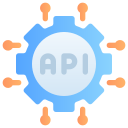Core Networking Libraries You Can Trust
Retrofit and OkHttp form a rock-solid foundation for REST on Android, with interceptors, retries, and powerful converters like Moshi or Gson. Add Kotlin Coroutines or RxJava to simplify threading, and you’ll ship readable, testable networking code faster than ever.
Core Networking Libraries You Can Trust
Alamofire wraps URLSession with elegant APIs for requests, retries, and reachability. Pair it with Swift’s Codable, async/await, and Combine for expressive data flows. The result is clear error handling, predictable performance, and fewer footguns in production.
Core Networking Libraries You Can Trust
Dio offers interceptors, cancellation, and timeouts right out of the box, while Chopper brings Retrofit-style annotations to Flutter. Together they streamline request pipelines, enrich logging, and accelerate experimentation across REST, GraphQL gateways, and edge cases.







